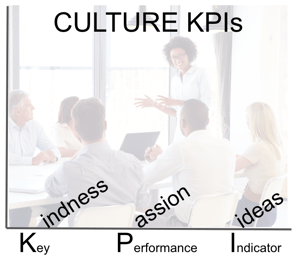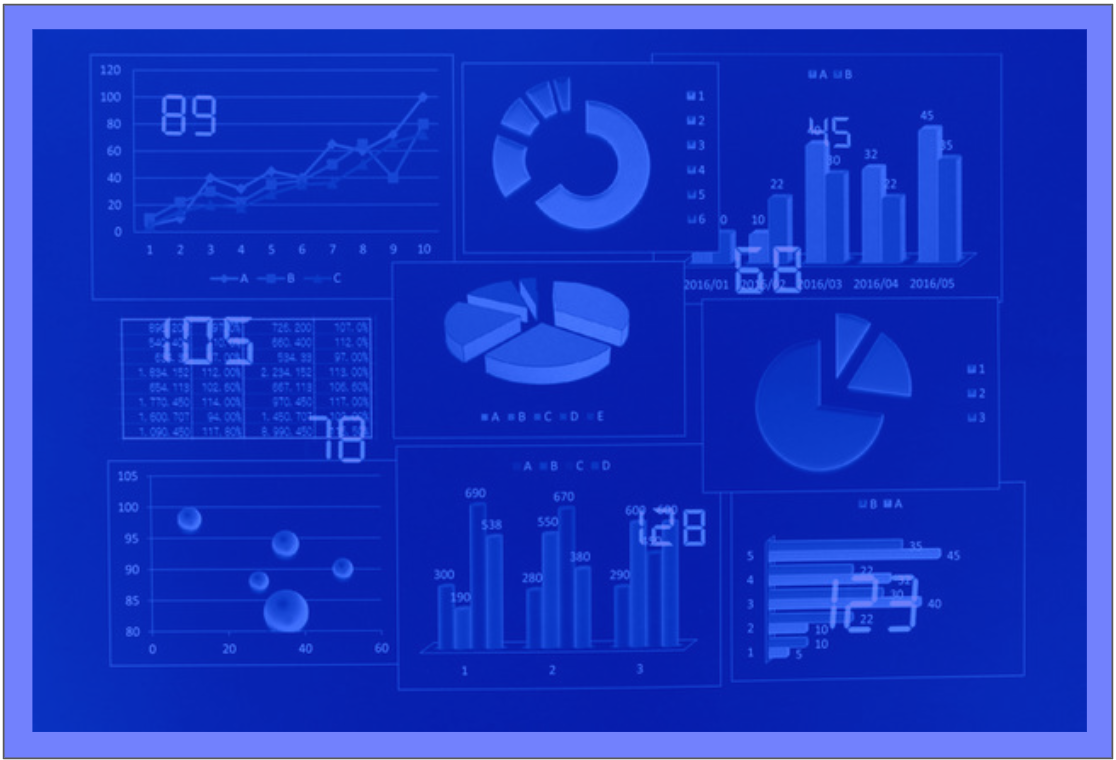Culture KPIs
Every agency uses metrics to track and measure the success of employees, teams and the business as a whole. These metrics are often called KPIs (Key Performance Indicators) within client organizations and the KPIs you choose determine what the agency values and also impacts the agency's culture.
 Common agency KPIs are financially-driven, like the what percentage of time an employee is billable or the margin percentage of a deliverable. (More examples here). You can imagine how these KPIs play out in agency culture. If your job performance is determined by how billable you are, it's going to take an act of Congress to get you on a non-billable new business pitch or similar project (like something specifically for the agency). Likewise, if the margins on deliverables determine who keeps their job, you can bet Project Management is going to run the teams as lean as humanly possible - even if it means burning the midnight oil on a regular basis.
Common agency KPIs are financially-driven, like the what percentage of time an employee is billable or the margin percentage of a deliverable. (More examples here). You can imagine how these KPIs play out in agency culture. If your job performance is determined by how billable you are, it's going to take an act of Congress to get you on a non-billable new business pitch or similar project (like something specifically for the agency). Likewise, if the margins on deliverables determine who keeps their job, you can bet Project Management is going to run the teams as lean as humanly possible - even if it means burning the midnight oil on a regular basis.
It's also common for departments themselves to have specific KPIs, so the New Business group might be measured by number of RFPs responded to per month or the win rate on pitches. Each of these has impacts on culture as well (if I'm measured by number of RFPs, I'm less concerned about the quality fit of the RFP and more concerned about how quickly I can generate the response - you get the idea).
 Some agencies have taken a different approach and turned KPIs into specific cultural measurements themselves. In one case, they even made the acronym do double-duty, standing for both Key Performance Indicator and the cultural measurements as well. Here's what they used:
Some agencies have taken a different approach and turned KPIs into specific cultural measurements themselves. In one case, they even made the acronym do double-duty, standing for both Key Performance Indicator and the cultural measurements as well. Here's what they used:
K = Kindness
This metric is demonstrated by an employee's actions both within the agency and without. Examples include:
- Showing up for meetings on time (which demonstrates Kindness to everyone else in the meeting)
- Checking with your team members before leaving at night to see if you can help them get out of the office as well
- Not speaking poorly about coworkers or clients either in or out of the office
It's basically a "treat others like you want to be treated" metric, and you can imagine the multiplicity of instances this metric would apply to. The end result however is always a better culture for everyone.
P = Passion
 Everyone wants to be passionate about what they do, whether that job is writing copy or managing projects. Not everyone is passionate about what they're doing which is often because they're in the wrong job. By making Passion a KPI for the agency's culture, you're making it perfectly clear that:
Everyone wants to be passionate about what they do, whether that job is writing copy or managing projects. Not everyone is passionate about what they're doing which is often because they're in the wrong job. By making Passion a KPI for the agency's culture, you're making it perfectly clear that:
- The agency expects everyone to be passionate about what they do (this is not an agency for clock-watchers)
- If you're not passionate about what you're doing, then the agency will help you figure out what you are passionate about and get you in that job (even if that job isn't at the agency)
As with the Kindness metric, this indicator requires commitment from agency leadership as well. To fulfill on this metric, the employees have to believe that leadership is committed to their success and sincerely wants them to be passionate about what they're doing. The net result of this metric is a workforce that doesn't have to be cajoled into putting in the extra effort required for a quality product - they do it because they love what they do.
I = Ideas (or Innovation)
 Ad agencies are supposed to be about ideas. They're the hotbed of creativity. Every employee should be attuned to that fact, excited by that fact and proud to be part of a company that not only values ideation but actually measures its people by their commitment to that ideal. How this metric is measured is up to the agency, but one example is an Ideation Deliverable.
Ad agencies are supposed to be about ideas. They're the hotbed of creativity. Every employee should be attuned to that fact, excited by that fact and proud to be part of a company that not only values ideation but actually measures its people by their commitment to that ideal. How this metric is measured is up to the agency, but one example is an Ideation Deliverable.
Ideas and innovation are what set agencies apart, and an agency that makes ideation a defining metric of performance for employees says all the right things to new and prospective employees. Ideas have to be a core cultural value of agencies if there's any chance for agencies to survive the insourcing of agency functions due to cost-cutting measures.
Key Performance Indicators are standard in the business world because they keep the company focused on delivering what matters. Using KPIs to define and build agency culture can produce the kind of agency everyone wants to work for (and with!).
But KPIs are useless if you don't have the systems necessary to track and measure them. Agencies are complex and data pores in from all competencies. To accurately measure your financial and operational performance you need an Agency Management System that integrates that data and presents it to you in a way you can understand, evaluate and share.
Advantage integrates Accounting, Project Management and Media to give you a comprehensive view of the agency's operations and provide you the right tool to optimize those operations to not only meet, but exceed your KPIs. Schedule a quick online demo today and see what a difference AQUA can make for your agency.


